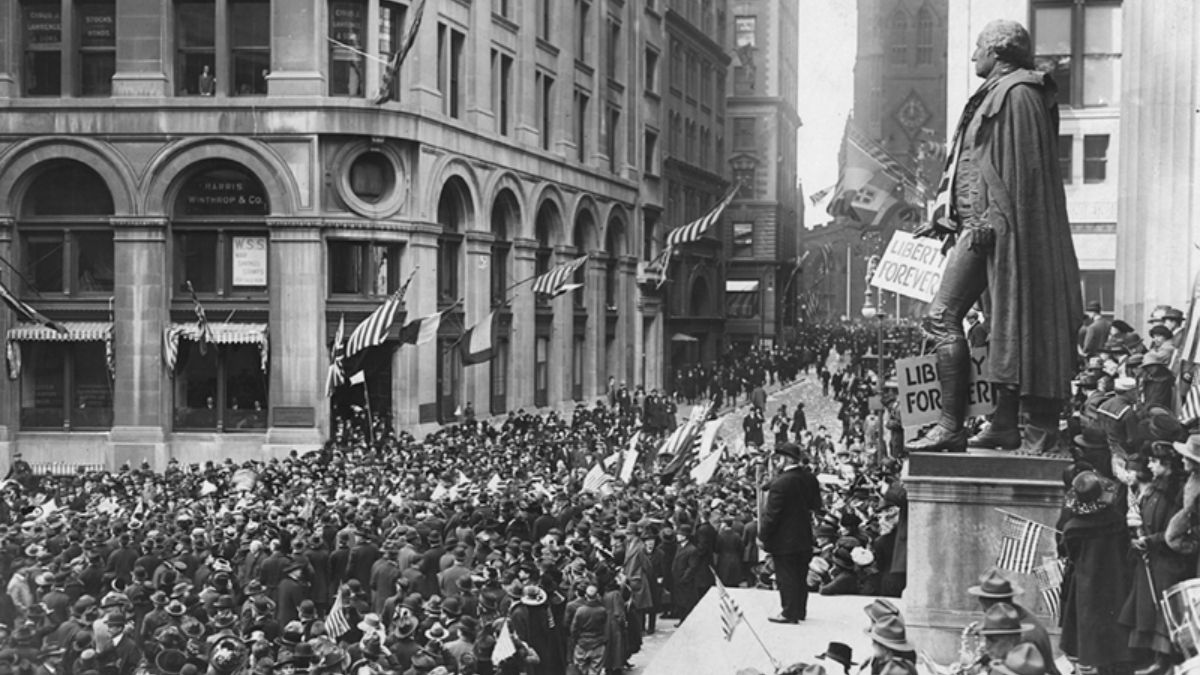November 11 is an important day in history as World War I came to an end in 1918 after four years of devastating conflict. Also known as Armistice Day, it was when an agreement was signed between the Allied Powers and Germany to end the war.
If you are a history geek who loves to learn about important events from the past, Firstpost Explainers’ ongoing series, History Today will be your one-stop destination to explore key events.
On this day in 1923, Adolf Hitler was arrested for his role in the failed Beer Hall Putsch, an attempted coup in Munich, Germany.
Here is all that took place on this day.
World War I came to an end
After more than four years of devastating global conflict, World War I finally came to an end on November 11, 1918. At exactly 11 am, the guns fell silent across the Western Front, thus marking the start of peace after one of the bloodiest wars in history.
The war, which began in July 1914, had drawn in the world’s major powers, divided into the Allied Powers including Britain, France, Russia, and later the United States along and the Central Powers, led by Germany, Austria-Hungary, and the Ottoman Empire. Trench warfare, new deadly weapons, and massive casualties defined the conflict, which claimed the lives of over 16 million people and left entire nations in ruins.
By late 1918, Germany was collapsing under the strain of military defeat, economic hardship, and civil unrest. Facing advancing Allied forces and internal revolution, the German government sought an armistice, or ceasefire. Negotiations took place in a railway carriage in Compiègne Forest, France, where the agreement was signed at 5 am on November 11, to take effect six hours later.
As news of the armistice spread, scenes of jubilation erupted across Europe and beyond. Crowds filled the streets of Paris, London, and New York, celebrating the long-awaited peace. The war officially came to an end with the signing of the Treaty of Versailles in June 1919, which imposed harsh penalties on Germany and redrew the map of Europe.
Hitler was arrested
Adolf Hitler, leader of the Nazi Party, was arrested for his role in the failed Beer Hall Putsch, an attempted coup in Munich, Germany, on this day in 1923.
The Beer Hall Putsch began on November 8, 1923, when Hitler and his supporters stormed a beer hall where Bavarian leaders were meeting. Inspired by Benito Mussolini’s “March on Rome,” Hitler aimed to overthrow the Weimar Republic and establish a nationalist dictatorship. He declared a “national revolution” and tried to coerce government officials into supporting his cause.
However, the plan quickly unravelled. The following day, Hitler led about 2,000 armed followers in a march through Munich, hoping to seize control of key buildings. They were met by police forces, and gunfire erupted leaving 16 Nazis and four policemen dead. Hitler fled the scene but was captured two days later, on November 11.
Charged with treason, Hitler stood trial in early 1924. Rather than weakening his influence, the trial gave him a national platform to promote his extremist ideology. His fiery courtroom speeches turned him into a symbol for nationalist movements across Germany. Found guilty, he was sentenced to five years in prison, though he served only nine months in Landsberg Prison.
It was during his imprisonment that he wrote “Mein Kampf”, outlining his racist and expansionist vision for Germany, ideas that would later form the foundation of Nazi policy.
This Day, That Year
The Church of England voted to ordain women as priests for the first time on this day in 1992.
In 1975, Angola declared independence after the Portuguese withdrew.
Washington was admitted to the union as the 42nd US state in 1889.
)